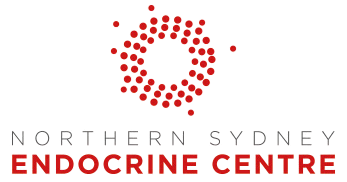What are hereditary endocrine tumour syndromes
Hereditary endocrine tumour syndromes are caused by genetic mutations that can be passed on from generation to generation. Carriers of these genetic mutations are at increased risk of developing certain types of endocrine tumours. Appropriate surveillance with blood tests and imaging help identify these tumours early, treat appropriately, and prevent complications from advanced tumours.
Types of hereditary endocrine tumour syndromes:
Multiple endocrine neoplasia type 1 (MEN1)
Patients with MEN1 are at increased risk for developing primary hyperparathyroidism, pituitary tumours and pancreatic neuroendocrine tumours.
Multiple endocrine neoplasia type 2 (MEN2)
MEN2a is a genetic mutation of the RET protooncogene which increases a person’s risk for developing medullary thyroid cancer, hyperparathyroidism and phaeochromocytoma.
MEN2b is also a genetic mutation of the RET protooncogene which increases a person’s risk for developing medullary thyroid cancer, phaeochromocytoma, and mucosal neuromas of the lipids, tongue and eyelids.
Familial Medullary Thyroid Cancer (FMTC) is also caused by a mutation in the RET gene. Families will have several family members affected with medullary thyroid cancer.
Von Hippel-Lindau disease (VHL)
Von Hippel-Lindau disease is a familial disorder caused by a mutation in the VHL gene which increases a person’s risk of developing phaeochromocytoma, central nervous system haemangioblastoma, kidney cancer and pancreatic neuroendocrine tumours.
Hereditary phaeochromocytoma-paraganglioma syndromes (SDHx mutations)
Succinate dehydrogenase (SDH) is an enzyme which is important for the metabolic function of mitochondria. Patients with mutations of these genes have increased risk of phaeochromocytoma, paraganglioma, stomach tumours and kidney tumours.
Relevant links

